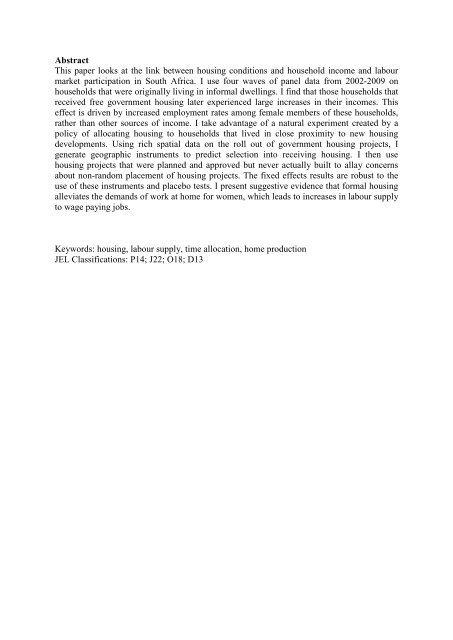1U08p2c
1U08p2c
1U08p2c
Create successful ePaper yourself
Turn your PDF publications into a flip-book with our unique Google optimized e-Paper software.
Abstract<br />
This paper looks at the link between housing conditions and household income and labour<br />
market participation in South Africa. I use four waves of panel data from 2002-2009 on<br />
households that were originally living in informal dwellings. I find that those households that<br />
received free government housing later experienced large increases in their incomes. This<br />
effect is driven by increased employment rates among female members of these households,<br />
rather than other sources of income. I take advantage of a natural experiment created by a<br />
policy of allocating housing to households that lived in close proximity to new housing<br />
developments. Using rich spatial data on the roll out of government housing projects, I<br />
generate geographic instruments to predict selection into receiving housing. I then use<br />
housing projects that were planned and approved but never actually built to allay concerns<br />
about non-random placement of housing projects. The fixed effects results are robust to the<br />
use of these instruments and placebo tests. I present suggestive evidence that formal housing<br />
alleviates the demands of work at home for women, which leads to increases in labour supply<br />
to wage paying jobs.<br />
Keywords: housing, labour supply, time allocation, home production<br />
JEL Classifications: P14; J22; O18; D13


